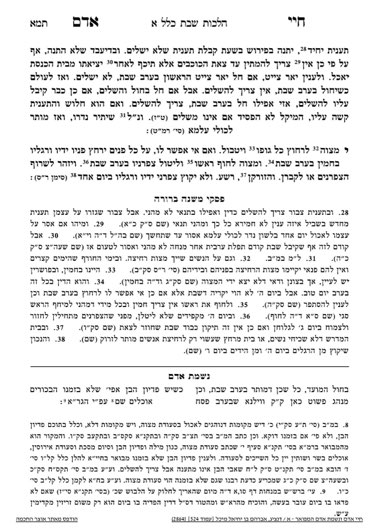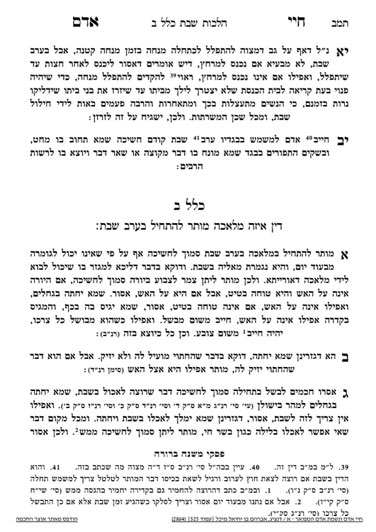We are continuing in siman 10, which discusses washing oneself for erev Shabbos. Yesterday, we discussed washing oneself, going to the mikvah, and cutting nails before Shabbos.
It is important to note that if one is going to the mikvah, the proper order is to cut one’s nails before going to the mikvah. The proper order is also to wash oneself before going to the mikvah.
We need to discuss a person who would prefer to wash themselves after going to the mikvah. The Gemara in Shabbos says that as mikvaos have to be standing water (and did not have filtration systems until the modern era), the water would begin to smell, so people would wash themselves after going to the mikvah. However, it got to the point that people assumed that washing oneself after the mikvah was an integral part of going to the mikvah, and eventually even assuming that washing oneself is the primary component of the mikvah and the mikvah itself is unnecessary. Therefore, Chazal imposed a takana that a person who washes themselves after going to the mikvah is tamei miderabanan.
The question is whether nowadays this takana still applies. On the one hand, we no longer practice the halachos of tumah and taharah, but on the other hand, if the entire point of going to the mikvah is for taharah, maybe we should practice all of the nuances of the halacha.
The Shulchan Aruch brings this halacha down regarding when a woman goes to the mikvah, and paskens that we are makpid on it for a woman’s tevillah. However, at the end of siman 201, the meforshim point out that it only applies to a woman, who is chayav to go to the mikvah. A man going to the mikvah, who has no inherent chiyuv, is allowed to wash himself afterwards.
The next siman discusses the appropriate time to daven mincha on erev Shabbos. Most people who are working do not have a choice in the matter, and daven mincha immediately before Kabbalas Shabbos. However, the Chayei Adam writes that it would be preferable to daven earlier. We will see that the Mishnah Berurah does not bring down this point.
We learned (S0020) that there are two zmanim for mincha. Based on the division of daylight by sha’os zemanios, one can daven mincha from 6.5 hours after sunrise; i.e., half an hour after halachic midday. This time is known as mincha gedolah. However, the preferred time to daven mincha is 9.5 hours after sunrise, known as mincha ketana. There is also a time known as plag hamincha, which, according to Rav Yehuda, is a time at which one may begin davening maariv, and according to the Rabbanan, it is the earliest time for accepting Shabbos. We will discuss these zemanim as they apply to mincha on erev Shabbos in the upcoming shiur, be’ezras Hashem.
Summary
- The preferable order is to wash oneself and cut nails before going to the mikvah. However, it is not assur for a man to wash himself after going to the mikvah.
- The earliest time to daven mincha is 6.5 hours after sunrise, known as mincha gedolah. However, it is preferable to daven after 9.5 hours after sunrise, known as mincha ketana.
Pesach 5783
Click here to watch Rabbi Reingold performing a Model Seder.




